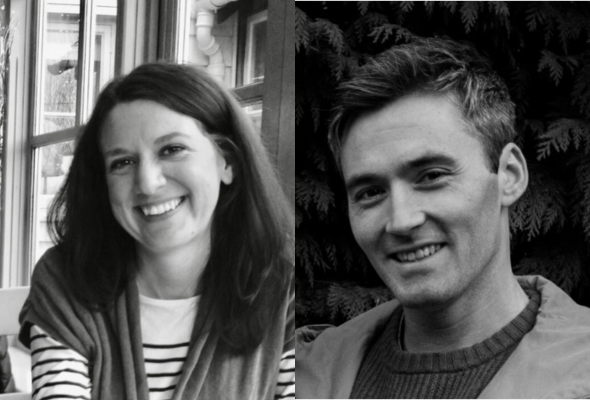15 November 2023
Clare Sweasey and Dr Jack Cahill from the brain injury team at King’s College Hospital talk about their work with KHP Neurosciences to create a new training module.
Please could you introduce yourselves and your work?
I’m Clare Sweasey – a Senior Clinical Nurse Specialist in the Brain Injury service. I have worked in neurosciences for the last 20 years and as a specialist nurse for more than10 years. I completed a Masters in Advanced Clinical Practice and as part of this I led a quality improvement project with Jack, looking at how we manage patients with challenging behaviour.
And I’m Dr Jack Cahill – a clinical psychologist in neuropsychology. I have been working in the Brain Injury Team for the past five years. Prior to that I completed a Doctorate at Royal Holloway, University of London where I discovered my joy for working in neurosciences and developed my interest in working with individuals who have challenging behaviour.
Together we work as part of the brain injury team which is a multidisciplinary professional team at King’s College Hospital NHS Foundation Trust and are based at Denmark Hill. The service sits within neurosciences however we see patients from across the Trust. Our work focuses on patients with traumatic brain injury, hypoxic brain injury and neurovascular conditions. Whilst we are involved with in-patient work and family support, we also provide patients with follow up care for several years following their injury and after hospital discharge.
What’s the background to the Challenging Behaviour Online Module?
We wanted to share our experiences of best practice to help staff and patients.
Our team has a lot of experience and is often called to work with patients who are presenting with challenging behaviour in the context of brain injury. As part of the quality improvement project, we worked as a multi-disciplinary team to develop clinical documents, training and new processes for managing patient care. We chose to continue developing this work and from this we have developed the online training which will be hosted on the King’s Health Partners Learning Hub.
Who is the module for and how will participants benefit?
Our inspiration for developing this module stems from frequent encounters with challenging behaviour in acute healthcare settings following acquired brain injury. We recognise the advantages for both patients, families, and staff when challenging behaviour is effectively managed with a focus on individualised and compassionate care.
We have developed the module for all health care professionals who work in acute hospital settings with patients who have challenging behaviour following an acquired brain injury. The course will help clinicians to identify common triggers and develop plans to minimise incidences of challenging behaviour.
How has working as part of KHP Neurosciences informed this work?
Without the support of the KHP Neurosciences programme team we would not have had a platform to be able to share our clinical experiences.
We have valued the regular meetings, patience, and guidance throughout the process. We are proud of what we have been able to achieve together. It is amazing to have an idea and be able to follow through on it as this is often lacking as a clinical team. We are good at getting the day-to-day clinical work completed but often do not have the headspace to think about developing new initiatives. This is where the relationship with the KHP Neurosciences programme team has been so beneficial.
To take the module, visit the KHP Learning Hub and search for ‘Challenging Behaviour in Acquired Brain Injury’.
King’s Health Partners Neurosciences has an ambitious vision to use our collective clinical, research, and educational expertise to deliver world-class patient care and research.





